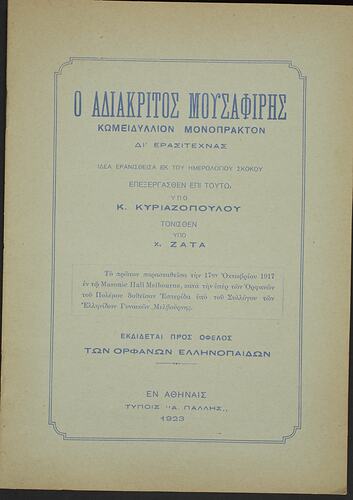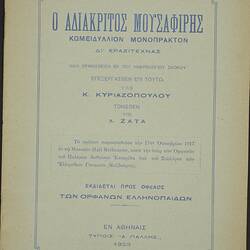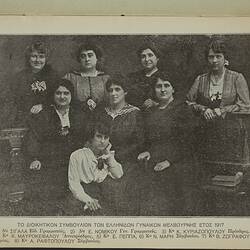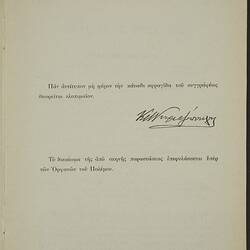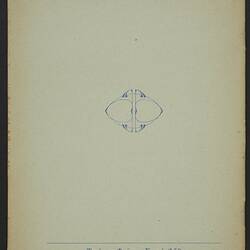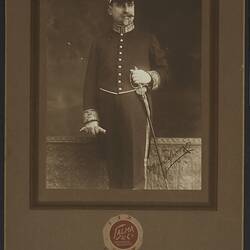Summary
Publication of a Greek play 'Adiakritos Mousafiris' ('The Inconsiderate Guest') written by Dr Constantine Kyriazopoulos in 1917. A one act social comedy of manners, it was published in 1923 by A. Pallis Publications, and considered to be the first play written by a Greek migrant in Australia. In 1916, Constantine's wife Antigoni had assisted in establishing the Melbourne Greek Women's Society, and as president she instigated the staging of Constantine's play in Melbourne in 1917, in aid of the Greek War Orphans' Relief Fund at the Masonic Hall, Melbourne.
Constantine migrated to Australia from Greece in 1902, settled in Melbourne and returned to Greece in 1909 to arrange his marriage to Antigoni Dimissa whom he married in Melbourne that same year. A qualified doctor, his early years were difficult due to the non-recognition of his qualifications as well as his limited English language skills, both of which he overcame. He became a highly respected and active member of the local community and was appointed Consul for Greece for Melbourne from 1921 to 1923. Constantine had two children and he died in 1939.
Significance
This collection holds enormous social and cultural significance for the state collection. Its value lies in its breadth of material (textiles, documents, tools and equipment, and photographs) and strength of its provenance. The story and the objects which belonged to Dr Constantine and Antigoni Kyriazopoulos enable the museum to both represent and explore key themes, including early 20th century, non-British migration; professional rather than the more common labour and trades category of male migration; early 20th century social and cultural life in Melbourne; female agency is creating migrant support networks; examples of individual discrimination in early 20th century Australia; and the maintenance and adaptation of a cultural identity through the process of migration and settlement.
The documents relate to the doctor's working life (business cards, letterhead and invoice, medical congress identity tag, professional qualifications certificate and diploma), his ongoing connections to Greek cultural life (Greek play booklets and periodicals), his position as Greek Consul (Victorian Government gazette announcement and Consul letterhead) and his decision to change his surname (deed poll), a common migrant experience. There is also a rare passport belonging to Antigoni demonstrating her return passage to Melbourne.
The clothing items, particularly the Greek consul uniform is an excellent example of active and visible cultural maintenance, as well as official recognition. The women's clothes and accessories (dresses, jackets, gloves, bags, belts) are significant as strong examples of their period, and as examples of clothing (procured both in Melbourne and in Greece) worn by affluent women of non-Anglo background in Melbourne in the 1910s and 20s. The collection of underclothes augment the museum growing collection of women's trousseaux which ranges across time and culture.
The medical case, brass plaque and medical tools offer tangible evidence of the doctor's professional tools of trade from this early period while the uniform and flags enable the representation of Consul activity in early 20th century Melbourne,
More Information
-
Collecting Areas
Migration & Cultural Diversity, Medicine & Health, Working Life & Trades, Leisure
-
Acquisition Information
Cultural Gifts Donation from Mrs Fife Denovan, 14 Mar 2012
-
Author
Dr Constantine Kyriazopoulos, Melbourne, Victoria, Australia, 1917
-
Agent
Antigoni Kyriazopoulos, Melbourne, Victoria, Australia, 1917
-
Date Published
-
Format
Photograph, Black & White
-
Classification
-
Category
-
Discipline
-
Type of item
-
Object Dimensions
147 mm (Width), 2 mm (Depth), 207 mm (Height)
-
Keywords
Greek Immigration, Greek Communities, Medical Workers, Performing Arts, Theatre, Writers & Authors, Fundraising Events, World War I Fundraising
